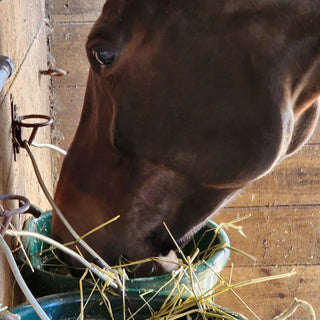Prevent horse colic in the winter is a matter of maintaining your horse's access to warm water for your horse. Dr. Worth explains the relationship between water intake and colic.
Colic is a condition that affects horses and refers to abdominal pain caused by various digestive issues. It is one of the most frequent reasons for equine hospitalization and can range from mild to life-threatening. There are several different types of colic, including gas colic, impaction colic, spasmodic colic, and twisted gut, each with its own causes and symptoms.
Symptoms of colic can include a change in eating and drinking habits, restlessness, sweating, kicking at the belly, lying down and getting up frequently, rolling, and looking at the belly. The causes of colic can range from feeding and management practices, to changes in the horse's environment and routine, to health problems.
Feeding practices that can increase the risk of colic include feeding high-grain diets, feeding moldy or spoiled hay, and feeding irregularly. Health problems that can increase the risk of colic include dental problems, parasite infections, and certain types of infection.
To reduce the chance of your horse colicking in the winter, there are two main things you can do: provide 24/7 access to free choice hay and to provide access to warm(er) water. Horses often avoid drinking ice cold water and thus, suffer from dehydration which increases their chances of colic.

